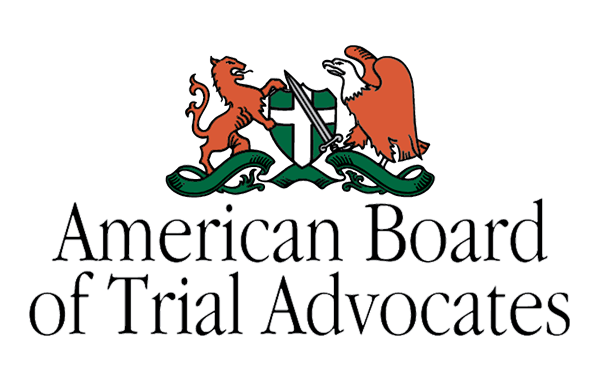Car accidents can be both stressful and overwhelming, especially when they result in damages to your vehicle. Even after repairs, your car may not hold the same value it did before the accident. This drop in value is what is known as diminished value. Many people do not realize that after a car accident in Texas, they may be able to seek compensation for this loss in value, in addition to any repairs that are made. It is important to understand how diminished value claims work, especially if you want to make sure you are getting the full compensation you deserve after an accident. At, Chavez Law Firm , we are here to guide you through the legal process and help you navigate the complexities of your case.








When a car is damaged in an accident, its market value can go down, even if it is properly repaired. This is because buyers will often be less willing to pay the same amount for a car that has been involved in an accident. Even though repairs can make the car safe and functional again, the fact that the car has a history of damage can reduce its worth. In Texas, drivers can file a diminished value claim to try and recover this difference in value. Knowing how these claims work, and how to approach them, can help you get the compensation that reflects the true impact of the accident on your vehicle.
What Is Diminished Value?
Diminished value is the loss in a vehicle’s market value after it has been involved in an accident and repaired. Even though the repairs may restore the vehicle to good working condition, the fact that it was damaged in a collision can still make it less attractive to potential buyers. People tend to pay more for cars that have never been in an accident, so when they find out a vehicle has been in one, they may offer less money for it. This drop in price is what diminished value refers to. In simple terms, diminished value means the difference between what your car was worth before the accident and what it is worth after the repairs have been made.
Diminished value claims are important because they help ensure that car owners are compensated for the full impact of the accident. While insurance companies will usually cover the cost of repairs, they may not always think about the fact that the car is now worth less than it was before. By filing a diminished value claim, you can try to recover the difference in value and make sure you are not left with a car that is worth less money without being fairly compensated for that loss.

Protecting Your Rights
Types of Diminished Value Claims
There are three main types of diminished value that car owners can claim after an accident: immediate diminished value, inherent diminished value, and repair-related diminished value. Each of these refers to a different way in which the car’s value may be affected by the accident and repairs.
Immediate diminished value refers to the loss in value right after the accident occurs but before any repairs are made. This type of diminished value is not usually relevant for most claims, as the vehicle will typically be repaired before a claim is filed.
Inherent diminished value is the most common type of claim. It refers to the permanent loss in value that happens simply because the car was involved in an accident, regardless of how well the repairs are done. Even if the repairs are perfect, the vehicle’s history will show that it was once damaged, which will usually make buyers less willing to pay full price for it.
Repair-related diminished value happens when the repairs themselves are not done properly. If the repairs are substandard or incomplete, this can lead to an additional drop in the car’s value. For example, if the paint does not match perfectly or if there are still visible signs of damage, buyers may offer even less for the car than they would if the repairs had been done well.
How Diminished Value Claims Work in Texas
In Texas, drivers can file a diminished value claim to recover the difference in their vehicle’s worth before and after an accident. To do this, they will typically need to show that their car has lost value as a result of the collision, even after being repaired. This can involve getting an appraisal or other evidence to show what the car was worth before the accident and what it is worth now.
Texas law allows drivers to file diminished value claims as part of their insurance claim. If another driver was responsible for the accident, you can seek compensation for diminished value through their insurance. This is known as a third-party claim. It is also possible to file a diminished value claim with your own insurance company, depending on the type of coverage you have. However, not all insurance policies include coverage for diminished value, so it is important to check your policy or speak with your insurance company to find out if you are eligible to make this type of claim.
It is important to note that in Texas, there is a time limit for filing a diminished value claim. This time limit is usually two years from the date of the accident, but it is always a good idea to start the process as soon as possible to avoid missing this deadline.
Calculating Diminished Value
Determining how much your car’s value has diminished after an accident can be a bit complicated. Several factors come into play when calculating diminished value, including the age of the vehicle, its condition before the accident, the extent of the damage, and how well the repairs were made.
One common way to calculate diminished value is by using a formula known as the 17c formula, which is used by many insurance companies. This formula considers factors such as the car’s pre-accident value, the severity of the damage, and a mileage-based adjustment to determine how much the car’s value has dropped. While this formula is often used as a starting point, it may not always reflect the full extent of the diminished value. In some cases, an independent appraisal may be necessary to get a more accurate estimate of the car’s current value.
It is also important to keep in mind that different insurance companies may use different methods for calculating diminished value, and they may not always offer the full amount you are entitled to. This is why it can be helpful to have an attorney on your side to help you navigate the claims process and make sure you are getting fair compensation.
Challenges in Diminished Value Claims
Filing a diminished value claim can sometimes be challenging, especially if the insurance company is reluctant to pay. Insurance companies may argue that the repairs were sufficient and that the car has not lost as much value as you claim. In some cases, they may offer a lower amount than what the car has actually lost in value, or they may deny the claim altogether.
Another challenge is that not all insurance policies include coverage for diminished value. Some policies may have specific exclusions that prevent you from filing a claim for the loss in value. This is why it is important to review your insurance policy carefully and understand what is covered before filing a claim.
Even if you are eligible to file a diminished value claim, you will need to provide evidence to support your case. This may include getting an appraisal of your vehicle, providing documentation of the repairs, and showing how much the car was worth before and after the accident. Having an attorney to help gather this evidence and present your case can make a big difference in the outcome of your claim.
The Role of an Attorney in Diminished Value Claims
Having an attorney to assist you with a diminished value claim can be incredibly helpful. Attorneys understand the laws surrounding diminished value claims and can help you navigate the process. They can assist in gathering evidence, calculating the diminished value of your vehicle, and negotiating with the insurance company on your behalf. If the insurance company is not offering a fair amount, your attorney can help you fight for the compensation you deserve.
An attorney can also help ensure that your claim is filed correctly and on time. In Texas, there is a two-year deadline for filing diminished value claims, and missing this deadline can prevent you from recovering any compensation. By working with an attorney, you can make sure that your claim is submitted within the necessary timeframe and that all the required documents are in order.
Filing a diminished value claim after a Texas car accident can help ensure that you are fully compensated for the impact the accident has had on your vehicle’s value. Even after repairs, your car may be worth less than it was before the accident, and a diminished value claim can help you recover the difference. Understanding how these claims work, and the steps involved, can make the process easier and increase your chances of getting fair compensation.
Common Car Accident Injuries
The leading cause of traffic collisions in Texas is speeding; this is true for most states. Speeding creates a significantly shorter reaction time for both the driver and the vehicle. Driving in bad weather is dangerous to begin with, but when you speed in bad weather, your chances of getting into an accident increase exponentially.
Due to the high number of car accidents, caused by speeding or other factors, that occur each year, car collisions are the leading cause of personal injury claims in El Paso and throughout the United States. Some of the most common injuries include:
- Whiplash
- Seat belt injuries
- Airbag injuries
- Broken bones
- Brain injuries
- Spinal cord injuries
Other damages can include property repair and replacement, medical bills, loss of income, and even mileage to and from doctor appointments. Anyone who has been seriously injured in an accident has every right to obtain fair compensation by filing an injury claim with the help of our El Paso car accident lawyers.
What Causes Rear-End Collisions?
Rear-end collisions occur when one vehicle collides into the back of another vehicle. There are several factors that can contribute to these types of accidents, including:
- Tailgating: When a driver follows another vehicle too closely, they may not have enough time to react if the vehicle in front of them stops suddenly.
- Distracted Driving: When drivers are distracted by their phones, eating, or other activities, they may not be paying enough attention to the road and may not see a vehicle stopping in front of them.
- Speeding: If a driver is traveling too fast, they may not be able to stop in time to avoid colliding with the vehicle in front of them.
- Faulty Brake Lights: If a driver’s brake lights are not working, the driver behind them may not know that they are stopping.
What Should You Do If You’re Involved in a Rear-End Collision?
If you’re involved in a rear-end collision, there are several steps you should take:
- Check for injuries: The first thing you should do is check yourself and your passengers for injuries. If anyone is injured, call 911 immediately.
- Move to a safe location: If possible, move your vehicle to a safe location away from traffic. If you can’t move your vehicle, turn on your hazard lights and stay in your car until help arrives.
- Exchange information: Exchange insurance and contact information with the other driver.
- Take photos: Take photos of the damage to both vehicles, the scene of the accident, and any injuries.
- Contact your insurance company: Contact your insurance company as soon as possible to report the accident.
What Are the Laws Regarding Rear-End Collisions in Texas?
In Texas, the law places a presumption of fault on the driver who rear-ends another vehicle. However, this presumption can be rebutted if the driver who was rear-ended was also negligent. For example, if the driver who was rear-ended suddenly slammed on their brakes for no reason, they may also be at fault for the accident.
What Damages Can You Recover in a Rear-End Collision Lawsuit?
If you’ve been involved in a rear-end collision in Texas, you may be able to recover damages for:
- Medical expenses: This includes any medical bills related to injuries sustained in the accident.
- Property damage: This includes the cost of repairing or replacing your vehicle.
- Lost wages: If you had to miss work due to the accident, you may be able to recover lost wages.
- Pain and suffering: You may be able to recover damages for physical and emotional pain and suffering caused by the accident.
It’s also important to note that Texas has a statute of limitations for personal injury claims, including those related to rear-end collisions. This means that you have a limited amount of time to file a claim for damages. In Texas, the statute of limitations for personal injury claims is two years from the date of the accident. If you fail to file your claim within this timeframe, you may be barred from recovering damages.
To protect your rights and ensure that you receive the compensation you deserve, it’s important to work with an experienced personal injury attorney. An attorney can help you navigate the complex legal process and advocate for your rights. They can also help you gather evidence, negotiate with insurance companies, and represent you in court if necessary.
Rear-end collisions are a serious issue in Texas, and understanding what causes them, what to do if you’re involved in one, and how to protect your rights is crucial. By following the steps outlined above and seeking legal representation when necessary, you can help ensure that you receive the compensation you deserve and move forward with your life after a rear-end collision.
Preparation Techniques for Rear-End Collisions
When faced with the imminent threat of a rear-end collision, taking swift action can make a significant difference in minimizing bodily harm. Instead of succumbing to panic, it’s crucial to employ strategies that can mitigate the impact of the crash. Here’s what you should do:
Maintain a Forward-Facing Position
Avoid sudden movements that can exacerbate injuries, such as leaning forward or turning your head to the side. By keeping your gaze forward, you can better brace for impact and reduce the risk of neck strain.
Brace Against the Headrest
Positioning your head firmly against the headrest can provide crucial support to your neck and minimize the effects of whiplash — an all-too-common injury in rear-end collisions.
Apply Pressure to the Brake Pedal
Engage the brake pedal firmly to slow down the vehicle’s momentum and lessen the force of the impact. This action can help distribute the forces exerted on your body more evenly, reducing the likelihood of severe injuries.
Press Against the Backseat
By pressing your back firmly against the backseat, you can stabilize your body and minimize the risk of sustaining spinal injuries. Distributing the force of the collision across a larger surface area can help mitigate the severity of the impact.
Adopting these preparatory measures, often referred to as the “brace position,” can substantially decrease the risk of sustaining debilitating injuries during rear-end collisions, offering a vital layer of protection against the abrupt forces encountered in such scenarios.
Understanding the Legal Framework for Car Accident Claims in Texas
In Texas, car accident claims are governed by a set of laws designed to determine who is responsible for the accident and what compensation is owed to the injured parties. Texas follows a fault-based system, which means that the party responsible for the accident is also responsible for compensating the injured party. This legal framework is based on the principles of negligence, where the injured party must prove that the other driver was at fault to recover damages.
The state of Texas has a modified comparative fault rule. Under this rule, you can still recover damages even if you are partially at fault for the accident. However, your compensation will be reduced by your percentage of fault. For example, if you are found to be 20 percent at fault for the accident, your compensation will be reduced by 20 percent. If you are more than 50 percent at fault, you will not be able to recover any damages.
Steps to Take Immediately After a Car Accident
The moments following a car accident can be chaotic and stressful, but it is important to take specific steps to protect your legal rights and your ability to file a claim. First and foremost, ensure that everyone involved in the accident is safe and that medical assistance is provided if needed. Once you have ensured that everyone is safe, you should contact the police to report the accident. A police report will be a crucial piece of evidence in your car accident claim, as it will contain important details about the accident, including the officers’ observations and any citations issued.
What to do if you are hit by an uninsured motorist in Texas
At Chavez Law Firm, we can help you make a claim for a car crash with an uninsured motorist. Insurance companies often try to deny applicants their rightful payment, but our goal is to step in and provide the representation you need to get the maximum amount of compensation. You should be able receive funds for your medical bills, vehicle damages, and more, so don’t let an insurance company tell you that you can’t get coverage.
To put yourself in the best position for a successful claim, there are a few steps you should take.
- Immediately following the accident, contact the police. They will file a report that has essential information for your claim-a report is also a valid source in the eyes of insurance companies.
- Next, get contact information from the other driver. Your insurance company may require a signed statement from the uninsured motorist that officially affirms their lack of coverage.
- Lastly, retain a skilled attorney and enlist their help in contacting the insurance company. Any miscommunication between you and the insurance company could lead to a denial of your claim. Make sure to talk to your accident lawyer and ask them how to approach the case.
Understanding Insurance Requirements in Texas
In Texas, all drivers are required to carry minimum liability insurance coverage to pay for damages in the event of an accident. The minimum coverage required by law includes $30,000 for each injured person, up to a total of $60,000 per accident, and $25,000 for property damage. This is often referred to as 30/60/25 coverage. While these are the minimum requirements, many drivers choose to carry higher limits to protect themselves in the event of a serious accident.
When you file a car accident claim in Texas, you will typically do so through the at-fault driver’s insurance company. If the other driver is uninsured or underinsured, you may be able to file a claim through your own insurance company if you have uninsured/underinsured motorist coverage. It is important to understand your insurance policy and the coverage it provides, as this will play a key role in your claim.
Check for Uninsured Motorist Coverage
One of the first things you should do if you’re hit by an uninsured driver is to check your own insurance policy. Many drivers in Texas carry uninsured/underinsured motorist coverage, also known as UM/UIM coverage. This type of insurance is designed to protect you in situations like these, where the other driver doesn’t have insurance or doesn’t have enough coverage.
UM/UIM coverage can help pay for repairs to your vehicle, medical expenses, and other damages caused by the accident. It’s important to note that UM/UIM coverage is not mandatory in Texas, but many drivers add it to their policy for extra protection. If you’re not sure whether you have this type of coverage, now is a good time to check with your insurance provider.
If you do have UM/UIM coverage, filing a claim under this policy may be one of the easiest and quickest ways to recover your losses. Your insurance company will step in to cover the costs, and you won’t have to deal directly with the other driver’s lack of coverage. However, depending on the specifics of your policy, you may still be responsible for certain deductibles or limitations.
What is No-Fault Insurance?

No-fault insurance, also known as Personal Injury Protection (PIP) insurance, is an automobile insurance system that allows policyholders to be reimbursed by their own insurance company for medical expenses, lost wages, and other costs arising from an auto accident, regardless of who was at fault. The primary goal of no-fault insurance is to ensure swift financial assistance for accident victims, reducing the need for lengthy legal battles over fault determination.
Texas No-Fault Insurance Requirements
Texas is not a traditional no-fault insurance state; rather, it follows a “fault” or “tort” system. Under this system, the driver who caused the accident is financially responsible for the resulting damages. However, Texas law requires that all drivers carry a minimum amount of Personal Injury Protection (PIP) coverage.
As of my last update in September 2021, the minimum PIP coverage required in Texas is $2,500 per person and $5,000 per accident. Additionally, Texas drivers must have at least $30,000 per injured person and $60,000 per accident in bodily injury liability coverage, as well as a minimum of $25,000 in property damage liability coverage.
Benefits of No-Fault Insurance in Texas
Quick Access to Medical Care: No-fault insurance provides a safety net for accident victims, as they can promptly seek medical treatment without worrying about the liability of the other party. This ensures that injuries are addressed swiftly, potentially leading to better recovery outcomes.
Coverage for Lost Wages: In the aftermath of an accident, injuries can prevent victims from returning to work immediately. No-fault insurance offers coverage for lost wages, helping policyholders meet their financial obligations while recuperating.
Streamlined Claims Process: With no-fault insurance, the claims process is often less complex, as there is no need to establish fault before receiving compensation. This can save time, energy, and legal costs for all parties involved.
Limitations of No-Fault Insurance in Texas
While no-fault insurance can be beneficial, it does have its limitations:
Non-economic Damages Not Covered: No-fault insurance typically covers economic damages such as medical expenses and lost wages. However, it does not compensate for non-economic damages like pain and suffering or emotional distress, which could be significant after a severe accident.
Limited PIP Coverage: The minimum PIP coverage required in Texas may not be enough to cover extensive medical bills or long-term rehabilitation costs, especially in severe accidents. Policyholders may need to explore additional coverage options for comprehensive protection.
Potential Rate Increases: Filing a PIP claim with your insurance company could lead to an increase in your premiums, even if you were not at fault for the accident. This aspect may discourage some drivers from utilizing their no-fault benefits.
Common Misconceptions about No-Fault Insurance in Texas
Despite the benefits and legal requirements of no-fault insurance in Texas, there are some misconceptions surrounding this type of coverage. Let’s address and clarify some of these misconceptions:
No-Fault Insurance Means No One is at Fault: One of the most common misconceptions is that no-fault insurance means that no one is held responsible for the accident. In reality, the term “no-fault” refers to the fact that each party involved in the accident is compensated by their own insurance company, regardless of who caused the collision. However, determining fault is still crucial under the Texas tort system when seeking compensation beyond the PIP coverage limits.
No Need for Legal Representation: Some individuals believe that no-fault insurance claims are straightforward and do not require legal assistance. While PIP claims may seem more straightforward than liability claims, having a skilled personal injury attorney on your side can still be advantageous. A lawyer can help you navigate the claims process, negotiate with insurance companies, and ensure you receive the full compensation you are entitled to.
No-Fault Insurance Covers All Costs: As mentioned earlier, no-fault insurance in Texas covers economic damages, such as medical expenses and lost wages, up to the policy’s limit. However, it does not cover non-economic damages or damages that exceed the policy limits. To recover additional compensation for pain and suffering or other non-economic losses, you may need to pursue a personal injury claim against the at-fault driver.
No-Fault Insurance Eliminates Lawsuits: While the intent of no-fault insurance is to minimize the number of lawsuits related to minor accidents, it does not eliminate the possibility of litigation entirely. If the accident results in severe injuries or death, or if the damages exceed the PIP coverage limits, injured parties may have the right to pursue a legal claim against the responsible party.
Understanding Your Options: Beyond No-Fault Insurance
Given the limitations of no-fault insurance in Texas, it is essential to consider additional insurance options that can provide more comprehensive coverage and protection. These options may include:
Uninsured/Underinsured Motorist Coverage (UM/UIM): This coverage safeguards you in case you are involved in an accident with a driver who lacks insurance or does not have enough coverage to compensate for your injuries and damages. UM/UIM coverage can be especially valuable in Texas, where some drivers may not carry adequate insurance.
MedPay Coverage: Medical Payment (MedPay) coverage is an optional add-on to your auto insurance policy that pays for medical expenses for you and your passengers, regardless of fault. This coverage can complement PIP and help cover medical costs that exceed the PIP limits.
Comprehensive and Collision Coverage: These types of coverage protect your vehicle in case of damage from non-accident-related incidents such as theft, vandalism, or weather-related incidents. Collision coverage also covers damages to your vehicle in a collision with another vehicle or object.
File a Police Report
Whenever you’re involved in an accident, it’s crucial to file a police report, even if the damage seems minor. This becomes even more important when the other driver doesn’t have insurance. A police report will provide an official record of the accident, which can be helpful when filing insurance claims or pursuing legal action.
When the police arrive at the scene of the accident, make sure to provide them with all the necessary details about what happened. Be honest and thorough in your description of the events leading up to the accident. It’s also important to note that in Texas, driving without insurance can result in penalties for the uninsured driver. By filing a police report, you’re not only protecting yourself, but you’re also ensuring that the other driver faces the appropriate consequences for breaking the law.
Filing a Claim with the Insurance Company
Once you have taken the necessary steps immediately following the accident, the next step is to file a claim with the at-fault driver’s insurance company. The claims process typically begins with you contacting the insurance company to report the accident. You will need to provide them with basic information about the accident, including the date and location of the accident, the names and contact information of the parties involved, and a brief description of what happened.
The insurance company will assign an adjuster to investigate your claim. The adjuster will review the police report, speak with witnesses, and inspect the damage to your vehicle. They may also ask you to provide a recorded statement about the accident. It is important to be cautious when speaking with the insurance adjuster, as they work for the insurance company and may try to minimize your claim. Before providing any statements, it is advisable to consult with an attorney who can guide you through the process.
The insurance company will then make a determination of fault and provide you with a settlement offer. It is important to remember that the first settlement offer from the insurance company is often lower than what you may be entitled to. Do not feel pressured to accept the first offer; you have the right to negotiate for a higher settlement.
Negotiating a Settlement
Negotiating a settlement with the insurance company can be a challenging process. The insurance company may try to minimize your claim by arguing that you were partially at fault or that your injuries are not as serious as you claim. This is where having strong evidence and documentation is crucial. Medical records, photographs of the accident scene, and witness statements can all be used to support your claim and demonstrate the extent of your injuries.
It is also important to consider the long-term impact of your injuries when negotiating a settlement. Some injuries may require ongoing medical treatment or result in long-term disability, and these future costs should be factored into your settlement. If you are unable to reach a fair settlement with the insurance company, you may need to consider filing a lawsuit.
Filing a Lawsuit in Texas
If negotiations with the insurance company are unsuccessful, filing a lawsuit may be the next step. In Texas, you have two years from the date of the accident to file a personal injury lawsuit. This time limit is known as the statute of limitations. If you fail to file your lawsuit within this time frame, you may lose your right to recover any damages.
Filing a lawsuit involves several steps, beginning with the filing of a complaint with the court. The complaint outlines the facts of the case, the legal basis for your claim, and the damages you are seeking. Once the complaint is filed, the other party will be served with a copy and given the opportunity to respond.
The discovery process follows, during which both parties exchange information and evidence related to the case. This may include depositions, interrogatories, and requests for documents. The goal of discovery is to gather as much information as possible to build your case.
After discovery, the case may go to trial, where a judge or jury will determine the outcome. However, many cases are settled before reaching this stage. If your case does go to trial, having a skilled attorney on your side is essential to present your case effectively and maximize your chances of a favorable outcome.
Damages You May Be Entitled To
If your car accident claim is successful, you may be entitled to various types of damages. These damages are intended to compensate you for the losses you have suffered as a result of the accident. In Texas, damages in a car accident case can include medical expenses, lost wages, pain and suffering, and property damage.
Medical expenses can include the cost of emergency treatment, hospital stays, surgeries, medications, and rehabilitation. If you require ongoing medical care, these future expenses can also be included in your claim. Lost wages refer to the income you have lost as a result of your injuries, as well as any future earning capacity that may be affected by your injuries.
Pain and suffering damages are intended to compensate you for the physical and emotional pain you have endured as a result of the accident. These damages can be more difficult to quantify, but they are an important part of your claim. Property damage includes the cost of repairing or replacing your vehicle and any other property that was damaged in the accident.
In some cases, you may also be entitled to punitive damages. Punitive damages are intended to punish the at-fault driver for particularly reckless or egregious behavior, such as driving under the influence of alcohol or drugs. However, punitive damages are rare and are only awarded in certain cases.
The Importance of Legal Representation
Navigating the process of filing a car accident claim in Texas can be challenging, especially when dealing with insurance companies and complex legal issues. Having an experienced attorney on your side can make a significant difference in the outcome of your case. An attorney can help you gather evidence, negotiate with the insurance company, and represent you in court if necessary.
An attorney will also ensure that your rights are protected throughout the process. They can advise you on the best course of action and help you make informed decisions about your case. If you have been injured in a car accident, it is important to consult with an attorney as soon as possible to ensure that your claim is handled properly and that you receive the compensation you deserve.
Filing a car accident claim in Texas is a complex process that requires a thorough understanding of the legal framework, insurance requirements, and the steps involved in pursuing a claim. By following the guidelines outlined in this complete guide, you can protect your rights and maximize your chances of obtaining a fair settlement.
The Role of Police Reports in Texas Car Accident Cases
A police report is a formal record created by a responding officer at the scene of the accident. It details the officer’s observations, statements from those involved, and any other information collected, such as witness accounts. While a police report may not always be definitive in determining legal liability, it provides a foundation that can be used by insurance companies, attorneys, and courts to evaluate the facts surrounding an accident. These reports become an invaluable resource for all parties trying to resolve the issues that arise from a collision.
The Immediate Impact of a Police Report
After a car accident occurs, especially when injuries or significant property damage is involved, contacting law enforcement is one of the first steps people should take. Police officers who arrive at the scene are tasked with documenting everything from the road conditions to the extent of the damage to vehicles. The officer will interview those involved in the accident, as well as any witnesses, to gather as much information as possible. All of this goes into the police report, which can serve as a neutral account of the event.
The immediate impact of this report is that it provides an objective perspective that is difficult for anyone involved to offer. The people in the accident may be confused, hurt, or emotional, which can cloud their memory or understanding of what happened. The police officer, on the other hand, approaches the situation from a different angle, compiling the facts based on what they see and hear. This neutrality is one of the reasons police reports carry significant weight in the days following an accident.
Establishing Fault Through a Police Report
One of the most important roles a police report plays in a Texas car accident case is helping to establish fault. Fault is a critical factor in determining who will be responsible for covering the costs associated with medical bills, vehicle repairs, and other damages. In Texas, which operates under a modified comparative fault system, determining fault can be complex. Each party’s responsibility for the accident is measured in percentages, and this affects the compensation they can receive.
The information in a police report provides key insights into how the accident occurred. This includes the officer’s observations about the positions of the vehicles, weather conditions, any citations issued, and statements from those involved. While the officer does not have the final say in determining legal fault, the report is often used by insurance adjusters and attorneys as they work to assign responsibility. The police report can serve as a starting point for negotiations between parties or in the courtroom if a lawsuit is filed.
For instance, if the report notes that one driver was cited for running a red light or failing to yield, this can be a strong indication of fault. Similarly, if the officer observes skid marks that suggest one driver attempted to brake before impact, this information can also be crucial in determining who was at fault. The report, therefore, serves as an essential piece of evidence when trying to assess liability.
The Role of Police Reports in Insurance Claims
Police reports also play an integral role in the insurance claim process. When someone files a claim with their insurance company, or the other driver’s insurance company, the police report is typically one of the first documents that will be requested. Insurance companies rely on the details in these reports to evaluate the accident and make determinations about payouts.
In Texas, where the laws surrounding car accidents can be complicated, having a police report that outlines the key facts can help expedite the insurance process. The insurance company may look at factors such as whether any citations were issued, what the officer observed at the scene, and whether any third-party witnesses corroborated the stories provided by the drivers. In many cases, insurance adjusters use the police report to determine the strength of a claim and the likelihood of a settlement.
If an insurance company disputes the version of events provided by the individual filing the claim, the police report can serve as a valuable piece of evidence to counter those disputes. Because the officer is seen as a neutral third party, the report carries significant weight in these discussions. Without the report, individuals may find it more challenging to prove their side of the story, especially if the other party offers a conflicting account of the accident.
The Importance of Accuracy in a Police Report
Given how crucial police reports are in determining fault and processing insurance claims, it is essential that these reports are accurate. If a person involved in the accident believes there are errors or omissions in the report, they have the right to request amendments. While this process may not always result in changes, particularly if the officer feels their observations were correct, it is important to review the report thoroughly after the accident.
In some cases, the officer may have misunderstood or misinterpreted statements made at the scene, especially if those involved were under stress or in pain. These small mistakes can have a significant impact on the outcome of the case. Therefore, promptly reviewing the report and bringing any inaccuracies to the attention of the authorities can be critical in ensuring a fair evaluation of the accident.
Using Police Reports in Court
While police reports are incredibly helpful in the claims process, they can also play a role in court cases if an accident leads to litigation. In Texas, when car accident cases go to court, the police report is often one of the key documents introduced as evidence. However, it is important to note that police reports are generally considered hearsay, meaning that they may not be admissible as direct evidence in every instance. Instead, the officer who wrote the report may be called to testify, explaining their findings and observations in court.
Despite these limitations, police reports can still provide valuable context and support for a plaintiff’s or defendant’s case. They offer a written record that can be referenced during testimony, and they help ensure that the facts of the accident are laid out clearly. In many instances, police reports can sway a judge or jury’s opinion, especially when paired with other evidence such as photographs, witness testimony, or opinions. Therefore, even though the report itself may not always be used directly in court, it can still have a profound influence on the outcome of the case.
The Long-Term Value of a Police Report
Beyond the immediate aftermath of an accident, police reports continue to hold value for an extended period. In Texas, where the statute of limitations for filing a personal injury lawsuit after a car accident is two years, having a police report on file ensures that the facts of the case are preserved. This can be particularly important if the case takes time to resolve or if new evidence arises later that needs to be compared with the information gathered at the scene.
Because memories fade and details become harder to recall, having an official record in the form of a police report can serve as a safeguard against the passage of time. This document can be revisited throughout the legal process, offering a consistent account of what happened at the scene of the accident.
The Top Causes of Car Accidents in Texas
Texas is known for its vast highways and busy roads, which unfortunately also means that it has one of the highest rates of car accidents in the United States. These accidents can lead to serious injuries, property damage, and even fatalities. In this blog post, we will take a look at the top causes of car accidents in Texas.
Distracted Driving
Distracted driving is the leading cause of car accidents in Texas. It includes any activity that diverts a driver’s attention from the road, such as texting, talking on the phone, eating, and adjusting the radio. According to the Texas Department of Transportation (TxDOT), in 2020, there were 99,567 crashes in Texas that involved distracted driving, resulting in 364 fatalities.
Speeding
Speeding is the second leading cause of car accidents in Texas. It refers to driving above the posted speed limit or too fast for the current road conditions. In 2020, there were 44,513 crashes in Texas that involved speeding, resulting in 1,334 fatalities.
Drunk Driving
Drunk driving is a serious offense that puts everyone on the road at risk. It refers to driving while under the influence of alcohol or drugs. In 2020, there were 23,005 crashes in Texas that involved alcohol, resulting in 1,016 fatalities.
Reckless Driving
Reckless driving includes any behavior that shows a disregard for the safety of others on the road, such as weaving in and out of traffic, running red lights, and tailgating. In 2020, there were 29,407 crashes in Texas that involved reckless driving, resulting in 925 fatalities.
Poor Weather Conditions
Texas is known for its unpredictable weather, which can lead to hazardous driving conditions. Poor weather conditions such as heavy rain, fog, and ice can reduce visibility and make it harder to control a vehicle. In 2020, there were 23,430 crashes in Texas that involved bad weather conditions, resulting in 363 fatalities.
Fatigued Driving
Fatigued driving refers to driving while feeling sleepy or tired. It can lead to slower reaction times and impaired judgment, putting everyone on the road at risk. In 2020, there were 2,630 crashes in Texas that involved fatigued driving, resulting in 14 fatalities.
Inexperienced Drivers
Inexperienced drivers, especially teenagers, are more likely to get into car accidents due to their lack of experience behind the wheel. In 2020, there were 29,862 crashes in Texas that involved drivers under the age of 21, resulting in 244 fatalities.
There are several factors that contribute to car accidents in Texas. To reduce the number of accidents on our roads, it is essential for drivers to stay focused, follow traffic laws, and practice safe driving habits. By doing so, we can make our roads safer for everyone.
Roadway Defects
Another factor that can contribute to car accidents in Texas is roadway defects. Poor road conditions such as potholes, uneven pavement, and inadequate lighting can make it difficult for drivers to maintain control of their vehicles. In 2020, there were 6,119 crashes in Texas that involved roadway defects, resulting in 224 fatalities.
Improper Lane Changes
Improper lane changes refer to when a driver fails to use their turn signal, checks their blind spot, or merges into a lane without enough space. These types of accidents can result in sideswipe collisions and rear-end collisions. In 2020, there were 22,302 crashes in Texas that involved improper lane changes, resulting in 224 fatalities.
Vehicle Malfunction
Finally, vehicle malfunctions such as brake failure, tire blowouts, and engine problems can also contribute to car accidents in Texas. It is important for drivers to properly maintain their vehicles and have them inspected regularly to ensure they are in good working condition. In 2020, there were 4,556 crashes in Texas that involved vehicle malfunctions, resulting in 205 fatalities.
There are several top causes of car accidents in Texas, ranging from distracted driving and speeding to poor weather conditions and vehicle malfunctions. By understanding these factors and taking steps to avoid them, we can all work together to make our roads safer for everyone. Remember to always practice safe driving habits, buckle up, and never drive under the influence of alcohol or drugs.
Mitigating Injuries in Car Crashes
In the chaos of a car crash, every second counts. Knowing how to brace for impact can mean the difference between minor discomfort and severe, long-term injuries. Despite the common misconception that relaxing during a collision can lessen harm, scientific evidence suggests otherwise. By tensing your muscles and adopting a brace position, you can better protect vital spinal structures, including nerves, ligaments, and vertebral discs.
Research has shown that bracing during frontal crashes not only reduces the risk of neck injuries but also has the potential to minimize hip fractures, which are prevalent in high-impact collisions. This proactive approach to safety can significantly shorten recovery periods and alleviate the severity of injuries sustained during accidents.
Seeking Compensation for Car Accident Injuries
If you’ve suffered injuries or losses in a car accident, you may be entitled to compensation to cover medical expenses, lost wages, and pain and suffering. Understanding the types of damages available can help you navigate the legal process more effectively. There are two main categories of compensatory damages:
Economic Damages
Economic damages are quantifiable losses that can be easily calculated, such as medical bills, lost wages, and vehicle repair costs. These tangible expenses aim to reimburse the injured party for financial losses incurred as a result of the accident.
Non-economic Damages
General damages encompass intangible losses that are more difficult to quantify, such as pain and suffering, emotional distress, and loss of enjoyment of life. These non-economic damages seek to compensate the victim for the physical and emotional toll of the accident, as well as any long-term consequences resulting from their injuries.
Punitive Damages
In cases of extreme negligence or misconduct, punitive damages may also be awarded to punish the at-fault party and deter similar behavior in the future. However, punitive damages are relatively rare and typically reserved for cases involving egregious misconduct or intentional wrongdoing.
The Role of a Guardian ad Litem
In many cases involving minors, the court may appoint a guardian ad litem to represent the child’s best interests. The guardian ad litem is an impartial advocate who assesses the situation and makes recommendations to the court regarding the settlement. Their role is to ensure that any settlement reached is fair and in the best interest of the minor. This appointment is a critical aspect of the legal process, as it adds a layer of protection for the child, ensuring that their future needs are considered.
The involvement of a guardian ad litem also means that any settlement must be approved by the court. This judicial oversight is designed to prevent any potential exploitation or unfair agreements. It is imperative to have legal representation that can effectively communicate with the guardian ad litem and the court, presenting a compelling case for the minor’s needs and rights.
Challenges in Proving Damages
Proving damages in cases involving minors can be particularly challenging. Unlike adults, minors have a long future ahead of them, making it difficult to predict the full extent of their medical needs and the impact of the injuries on their future quality of life. The testimony from medical professionals, economists, and life care planners may be necessary to accurately estimate these future needs and costs.
Pain and suffering, as well as emotional distress, are also significant components of the damages in these cases. Children may experience long-term psychological effects from the accident, including post-traumatic stress disorder (PTSD), anxiety, and depression. Documenting these non-economic damages requires careful attention to detail and often involves input from mental health professionals.
Furthermore, the legal concept of “loss of consortium” may come into play. This refers to the loss of the minor’s companionship and the impact of their injuries on their family’s life. Calculating these damages is inherently subjective, requiring a deep understanding of the family’s dynamics and the minor’s role within the family unit
The Importance of Timely Action
In Texas, the statute of limitations for personal injury claims generally allows two years from the date of the accident to file a lawsuit. However, when it comes to minors, this timeframe can be extended. Typically, the statute of limitations does not begin to run until the minor reaches the age of 18. Despite this extension, it is crucial to act promptly. Over time, evidence can be lost, memories can fade, and witnesses can become harder to locate. Initiating the claims process early increases the chances of a successful outcome.
Prompt action also ensures that the minor receives timely medical treatment and that their immediate and future needs are addressed. Delaying the legal process can result in gaps in medical care and unnecessary financial strain on the family. Engaging an attorney early in the process allows for a more coordinated approach to managing both the legal and medical aspects of the case.
Ensuring the Minor’s Future Well-being
One of the primary concerns in car accident claims involving minors is ensuring their long-term well-being. Settlements in these cases often involve structured settlements or trusts designed to provide for the minor’s future needs. Structured settlements can offer financial stability, distributing the settlement amount over time to cover ongoing medical expenses, education costs, and other necessities.
In some cases, a special needs trust may be established if the minor has sustained severe injuries that result in permanent disabilities. These trusts are designed to protect the minor’s eligibility for government benefits while providing funds for their care and support. Crafting these financial arrangements requires careful planning and a thorough understanding of both legal and financial principles.
If you have been in an accident and believe your vehicle has lost value, the team at Chavez Law Firm can help. Our experienced attorneys understand how diminished value claims work and are here to guide you through the process. Contact Chavez Law Firm today to learn more about how we can assist you in recovering the compensation you deserve.



